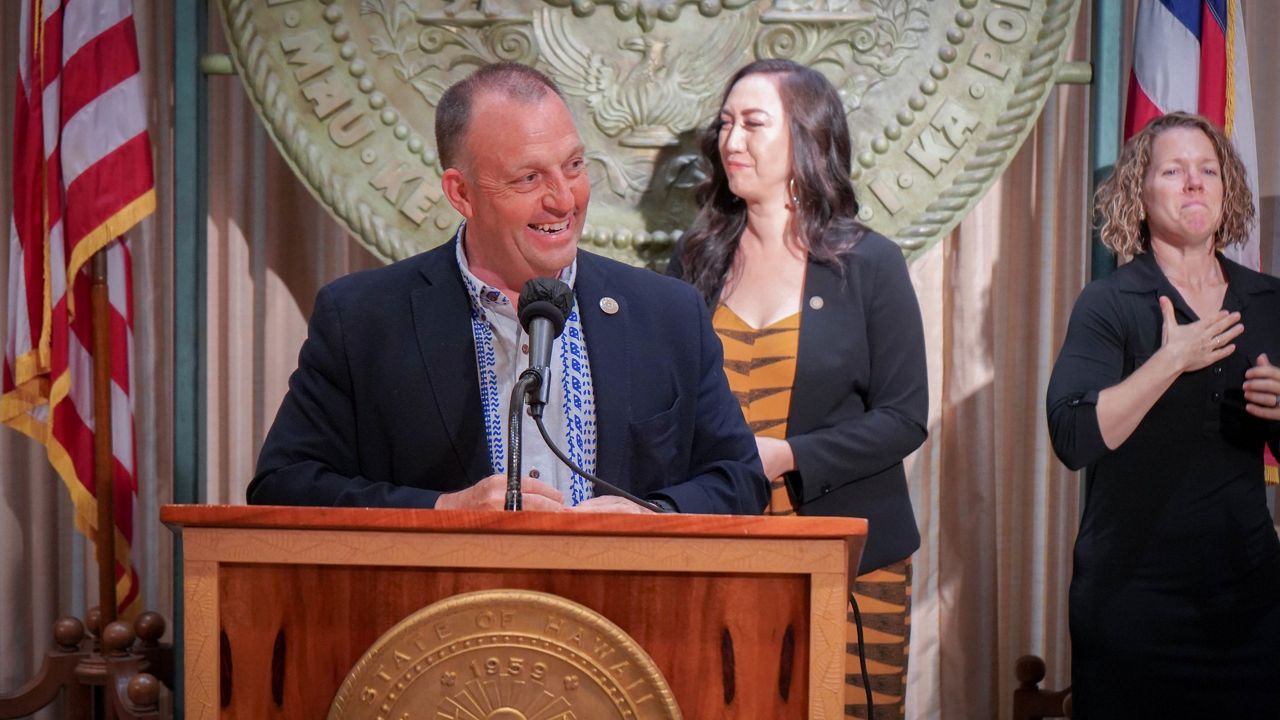HONOLULU — Gov. Josh Green lauded the work of the 2024 Hawaii State Legislature to “unlock” more affordable housing across the state during a bill-signing ceremony at the State Capitol on Tuesday.
“Housing has been and continues to be a top priority for my administration,” Green said. “This afternoon, I signed several bills that are aimed at tackling the severe housing shortage in our state. It’s a pretty exceptional day when we can move the needle on unlocking more housing across the state through permitting reform and by increasing financing for more affordable projects.”
The governor signed a half-dozen measures intended to expand the state’s affordable housing inventory and improve the governance rental laws contained in the Residential Landlord-Tenant Code.
Among the signings:
- Senate Bill 3202, Senate Draft 2, House Draft 1, Conference Draft 1, requires counties to adopt or amend ordinances that allow for at least two accessory dwelling units on all residentially zoned lots. It also prohibits private covenants for residentially zones lots within an urban district from limiting the number of accessory dwelling units below the amount allowed by state law or the long-term rental of residential units.
- House Bill 1760, HD 1, SD 1, CD 1, authorizes the Hawaii Housing Finance and Development Corporation to secure a line of credit or other type of loan for the bond volume cap recycling program; authorizes HHFDC or a county to create a bond volume cap recycling program authorized by federal law; and allows the Department of Budget and Finance and HHFDC to enter into an agreement with a county for a bond volume cap recycling program. The measure establishes a volume cap recycling program subaccount within the Rental Housing Revolving Fund to support affordable housing development.
- HB 1925, HD 2, SD 1, CD1, creates and funds the Hawaii State Planning Act Phase II Task Force to continue to guide long-range state development and housing policy solutions.
- House Bill 2090, HD1, SD2, CD1, allows adaptive reuse of existing commercial buildings under certain circumstances and requires each county to adopt or amend ordinances to allow for adaptive reuse of commercial buildings in its building codes.
- Senate Bill 2066, SD2, HD2, CD1, establishes another means for a housing project to seek an exemption from state laws and regulations that are developed under HHFDC programs.
- Senate Bill 2133, SD1, HD1, allows HHFDC to issue bonds for housing project infrastructure and finance the development of regional state infrastructure projects.
“These bills represent the efforts of not only policymakers, departments, agencies and stakeholders, but very importantly, the input of the community and so many who came out to testify on housing legislation,” Green said.
U.S. Sen. Brian Schatz, chair of the U.S. Senate Appropriations Subcommittee on Transportation, Housing and Urban Development said the new legislation offers reason for optimism in the state’s efforts to address the longstanding affordable housing problem.
“We are finally doing something meaningful to make it easier for families, workers, and local people to live in Hawaii and afford a place to call their own,” Schatz said. “Hawaii’s housing shortage took decades to build up because regulation is a one-way ratchet, so it’s not something that can be fixed in an instant. But for the first time in a while, I’m hopeful not just because of these bills, but because there is now a generation of lawmakers and other leaders that see this problem clearly and have the guts to do something about it.”
Michael Tsai covers local and state politics for Spectrum News Hawaii. He can be reached at michael.tsai@charter.com.



